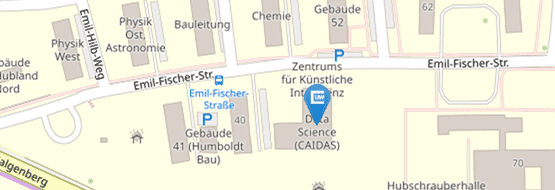Open Topics for Theses and Projects
Body awareness in virtual reality and augmented reality
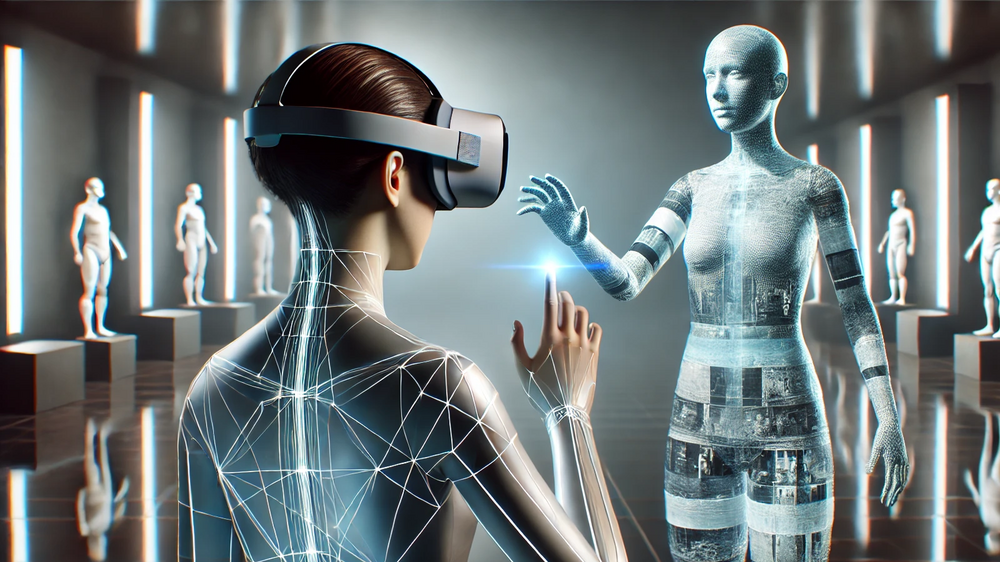
In this subject area, you will explore the influence of virtual embodiment and virtual humans on the interaction of body and mind. Virtual Reality (VR) and Augmented Reality (AR) make it possible to slip into new roles, see your own body from new perspectives, and experience yourself in a new way. Together, we will examine the extent to which the representation of one's own body, the way in which one encounters and interacts with the virtual self-image, and the virtual environment itself influence subjective body awareness, (physical) mindfulness, or body perception (for example, body weight perception) in AR/VR contexts. Depending on interest and experience, project and final theses (Bachelor and Master) with different focuses are possible:
Development of new methods for interacting with your own virtual body
Implementation of interaction methods, modeling of virtual environments
Evaluation: planning, implementation and evaluation of a scientific study
If you are interested, please contact Nina Döllinger & Marie Fiedler
eXTended AI - Human-Centered AI

In this subject area, you will research the effects that various features of intelligent and interactive systems (AI-based systems) have on people's experience. XR technologies offer completely new possibilities for investigation because you can change these features in a controlled and systematic way. Design industrial robots or personal assistance systems in virtual reality or mixed reality - human-centered and innovative. eXTended AI therefore combines the potential of XR technologies and AI-based systems. Collaboration with industry may be possible in this area. Depending on interest and experience, project and final theses (Bachelor and Master) with different focuses are possible:
Development of new human-centered AI-human interactions.
Implementation of XR environments to simulate these interactions.
Evaluation: Planning, implementation and evaluation of a scientific study.
If you are interested, please contact David Obremski
Embodied AI and VR in mental health care
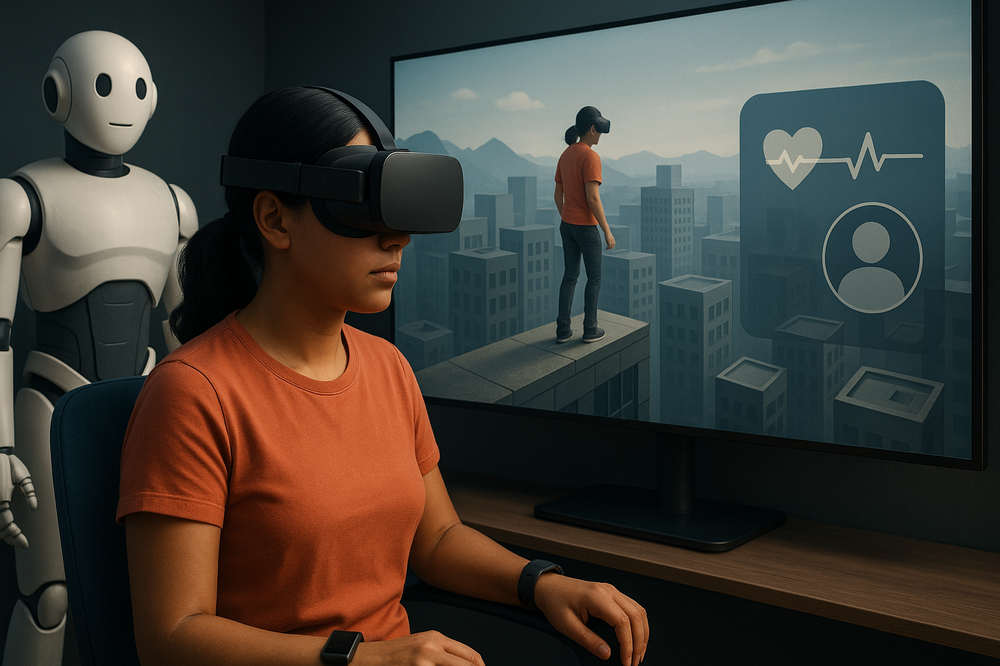
In this subject area, you will explore the possibilities of using (embodied) AI and VR for the treatment of mental disorders, including anxiety disorders, such as fear of heights. Through virtual environments stimuli that are otherwise difficult to experience in regular therapy can be experienced in a controlled environment (e.g., heights, planes). In this research effort, a particular focus is put on ethical aspects and the design of human-centered AI. Depending on interest and experience, project and final theses (Bachelor's and Master's) with different focuses are possible:
- Trust-inducing design of an embodied AI
- Design of anxiety-inducing virtual scenarios
- Physiological measures to monitor user's personal state, e.g., heart rate, voice, position
- Implementation and evaluation of ethical principles, e.g., transparency, autonomy, risk avoidance
If you are interested, please contact Paula Friedrich or David Obremski.
Prevention and behavior change with virtual reality
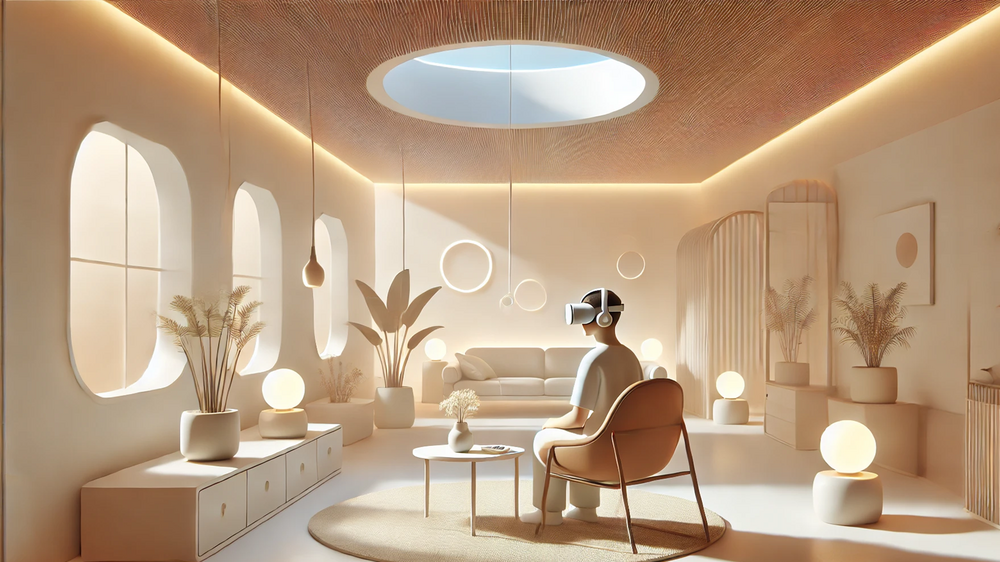
In this subject area, you will explore how virtual realities can be used, for example, to change individual environmental behavior or cure mental illness. Based on the BehaveFIT model by Wienrich, Hein and Döllinger (2021), you can derive specific impact factors. You can also further develop a VR prevention program against cyberbullying and test its effectiveness. These topics can be worked on in cooperation with the UKW Würzburg. Depending on your interests and experience, project and final theses (Bachelor's and Master's) with different focuses are possible:
Development of new intervention or prevention approaches
Implementation of interaction methods, modeling of virtual environments.
Evaluation: planning, implementation and evaluation of a scientific study.
If you are interested, please contact Jana Krauss
Psychological ownership of virtual objects and environments
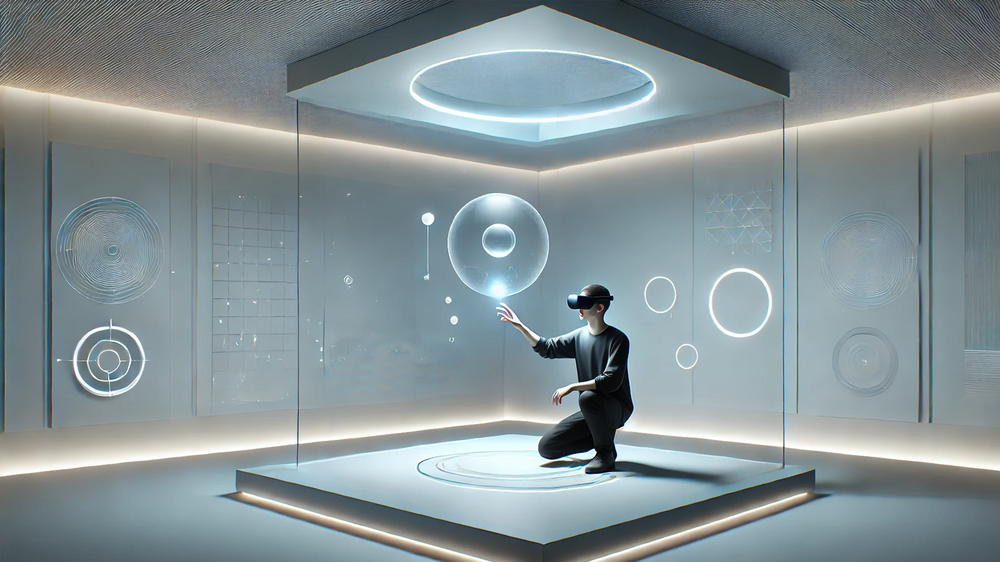
In this subject area, you will explore whether and how people feel psychological ownership of virtual objects and environments in virtual and mixed reality. How can we use this sense of ownership to make VR and AR/MR more accessible and support therapeutic projects?
Depending on interest and experience, project and final theses (Bachelor and Master) with different focuses are possible:
- Comparison of Psychological Ownership in VR and AR (e.g. of video games)
- Implementation of psychological ownership paradigms, modeling and programming of virtual environments
- Evaluation: Planning, implementation and evaluation of a scientific study
If you are interested, please contact Jana Krauss
New usage concepts for autonomous vehicles

In this subject area, you will explore what new possibilities there are when drivers of autonomous vehicles gain more free time while driving through automation. New entertainment and work concepts can be explored and new technologies can be tested. The working group has a small driving simulator that can be connected to various VR glasses. Depending on interest and experience, project and final theses (Bachelor's and Master's) with different focuses are possible:
Development of new concepts.
Implementation of new concepts with the driving simulator.
Evaluation: Planning, implementation and evaluation of a scientific study.
If you are interested, please contact Carolin Wienrich
TooCloseVR - Cyberbullying prevention in virtual reality

In this subject area, you will explore how we can use virtual reality to combat the growing problem of digital bullying (cyberbullying). To do this, you will join the existing TooCloseVR project. Within the project, a full-day workshop and a VR environment have already been developed to give students empathy for those affected and to educate them about cyberbullying.
Depending on interest and experience, project and final theses (Bachelor's and Master's) with different focuses are possible:
- Further development of the existing workshop (e.g. training teachers, feasibility tests)
- Implementation of new elements in an existing project, modeling and programming of virtual environments
- Evaluation: Planning, implementation and evaluation of a scientific study
If you are interested, please contact Jana Krauss
Analysis and development of digital skills

In this subject area, you will explore which skills people need when dealing with (AI-based) systems. In addition to knowledge from computer science, the model by Wienrich and Carolus (2021) focuses primarily on attitudes, emotions and ethical aspects. A wide range of fields of application can be explored here. Data from a 1-year long-term study can be used for the work, active participation in the third-party funded MOTIV project or addressing your own questions. Depending on interest and experience, project and final theses (Bachelor and Master) with different focuses are possible:
Evaluation and presentation of existing data.
Implementation of new questionnaires and data collection instruments.
Evaluation: Planning, implementation and evaluation of a scientific study.
If you are interested, please contact David Obremski
Harassment in social virtual reality
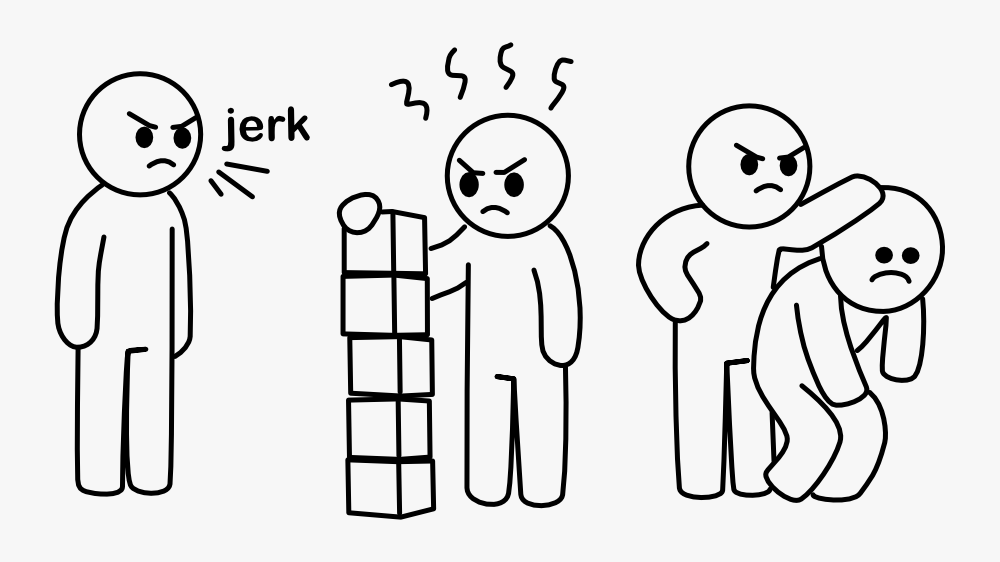
In this project area, you will investigate how embodiment and avatar design shape experiences of safety and harassment in social virtual reality (VR). Social VR platforms let users inhabit avatars and interact in immersive environments, creating unique opportunities for self-expression but also new risks of harmful behavior.
Depending on your interests, projects can explore:
- Observational studies of harassment and coping strategies in social VR communities (e.g., VRChat, Horizon Worlds).
- Design and prototyping of features that promote respectful interaction, such as adaptive avatar representations, spatial boundary tools, or community guidelines.
- Experimental evaluation of how embodiment, identity cues, or platform affordances influence the perception and impact of harassment.
These projects offer opportunities to combine empirical research, technical development, and user-centered design to better understand and address safety challenges in social VR.
If you are interested, please contact Jonathan Tschanter


